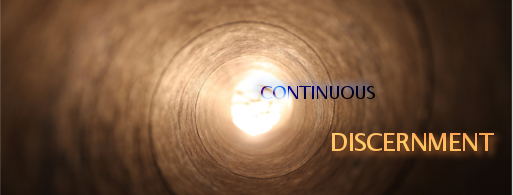A vocation is something extremely personal – and therefore extremely difficult to discuss. Of all the criteria for selection, it is perhaps the most daunting one, because it leads to the question: where do I start? How do I start even contemplating, let alone explaining, a task of the utmost importance? How could Isaiah volunteer himself so eagerly to be a prophet of the Lord? Such certainty, such fire, such passion!
Not all who feel called are so eager to get to the front of the line. Thankfully(?), we also have, at the other end of the spectrum, the example of Gideon, who carefully checked he was not mistaken. He showed due diligence in examining his own calling.
The issue, however, with putting out a fleece, is that it is difficult to do so honestly. All signs are interpreted. Confirmation bias is a thing. And so there is a fine line between seeking to verify/infirm a sense of calling and searching for excuses not to follow it.
I have tried, over a few older blog entries, to explain the discernment process. Broadly speaking, to me (and it may be different to others), the assurance in my sense of calling stemmed from a deep feeling of peace whenever I considered the ministry. It felt “right”, in a way other potential plans just felt “OK, I guess”.

Obviously, a life choice cannot be based on a fuzzy feeling alone. There is a fair amount of testing and discussing involved, and, as these progress, there is bound to be good times and worse times. I’ve been blessed enough to have had a rather smooth ride of it; the setbacks being merely circumstantial or of little consequence. The flip side of that, of course, is impostor syndrome.
And boy, does it kick hard when left to grow unchecked! Here are a few things about doubt. While they were written with calling in mind, I believe they also apply to other decisions.
1. Doubt is self-feeding. Doubt, like a festering wound, will only grow larger when not confronted. Now obviously, there is usually an initial trigger (an event, a change in circumstances, …) but that trigger does not rationally account for the extent of felt doubt. And so it is pointless to try to get rid of the doubt by simply looking at what is not its root but merely its trigger.
2. Doubt is hard to discuss. Part of the reason for that is that the friends I would discuss it with have (probably) been supporting me in following the calling I now doubt. And now considering moving away from it feels like a betrayal of that support. But the main reason is that I won’t control the narrative of that discussion. If doubt is genuine, then the conversation could go in any direction. And that is a scary thing to get into. But – here’s the thing: (a) it would be foolish to let one conversation seal the decision; and (b) if that’s still too scary, there are strategies to avoid relinquishing that control altogether.
3. Unbridled support may actually feed doubt. If I don’t feel my work is praiseworthy, then supporting me for it will just make me doubt your previous support. Sure, it will feel nice and reassuring on the spot, but definitely not in the longer run.
4. Doubt is not shameful, although that’s how it may feel. Gideon doubted, both of his calling and of his own ability to meet the daunting challenge ahead. And he did feel some inadequacy in his double-checking (see the start of verse 39), but it was not counted against him
5. Doubt is not beaten by reason alone. There is no amount of justification that will make doubt go away. Taking a rational approach such as listing pros and cons may give temporary solace, but it will leave some hesitation: am I simply rationalising this decision? Or is it truly the right decision? Of course, rational thought and careful consideration is necessary to tackle doubt. But it should not be expected to be sufficient: a decision that only sits in the mind yet not in the heart and soul is not a solid decision.
6. Doubt is blindsided. Doubt is generally about weighing up two options and getting bogged down in the consequences of both of them. Over time, these two options become so prominent that any other possibility will be discarded out of hand. Because, having invested so much pondering over these two choices, there must have been a pretty good reason why other options weren’t considered… And yet, that’s just pride talking. Other options may be available, and that’s one of the reasons why discussion with many trusted friends is important.
Ultimately, though, doubt is difficult to deal with. And it’s good to remember that, if you are doubting your life plans, or even smaller decisions, second-guessing yourself, you are not alone. And that talking about it with trusted friends will help.




